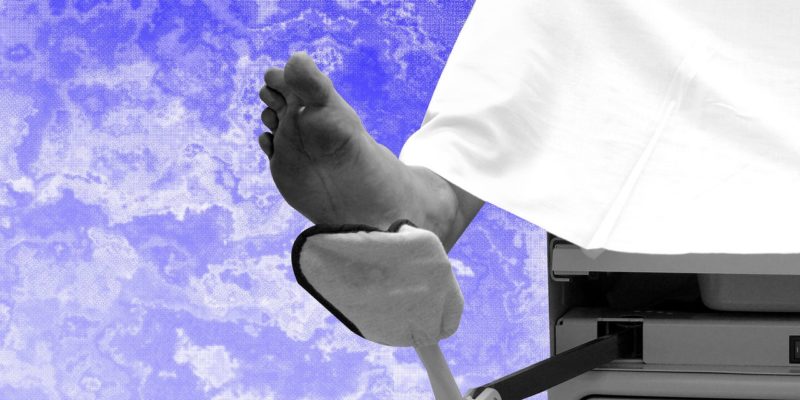
When they were six months pregnant, they learned their baby had something called a limb-body wall complex. The back of the fetus’s head hadn’t formed, her spine was at a right angle, and she was missing her left arm. Doctors told Mudridge that the baby wouldn’t survive for more than a few minutes outside the womb, and if they tried to deliver naturally, they would likely bleed out.
“I didn’t want the short minutes of life she would have had to be only excruciating pain,” Mudridge says. They donated the fetus to research of her condition and began the arduous recovery process. For weeks afterward, they bled, and their chest leaked milk.
“I bound my breasts with Ace bandages for months afterward because the milk had nowhere to go. That’s when I learned I liked the way I looked with a flat chest,” Mudridge explains. “I saw myself flat-breasted in the mirror and it was like a jolt — a knowing — and I was frightened.”
Mudridge doesn’t plan to have any more children, but in their other medical experiences since, they’ve struggled to find affirming care, getting misgendered and having their old name used throughout. “There is such a hyperfocus in dominant culture on vilifying trans women that people forget transmasculine folks exist, and [they] are often overlooked in the area of reproductive health care,” they tell Allure.
When the struggle to find affirming care is too great
When abortion — and reproductive health care, more broadly — are framed as exclusively cisgender women’s issues, it presents challenges for transgender people trying to get adequate and essential care.
Sanchez has witnessed this dynamic as well, as they’ve observed many cis women referring to all reproductive health care as “women’s health care.” This nomenclature, in many ways, erases trans women who don’t have uteruses, as well as trans men and non-binary individuals, who require reproductive care but don’t identify as women.
“If you’re trying to make the conversation neutral, people [think] that you’re doing this sexist thing where you’re not including women,” Sanchez says. “But when we’re talking about these medical things, or equity, we don’t want people, including cis women, to be defined by their ability to reproduce or defined by their body parts.”
The knowledge that affirming care is hard to find — and having had negative experiences in the past — can influence the decisions people make about their futures. Sanchez got pregnant again, about a year after their second abortion, and weighed the decision of whether or not to have another. “I knew I probably should have,” they say. “But I definitely decided not to, largely because I didn’t want to go through that again.”
Read more like this on Allure:
Now, watch Gabourey Sidibe’s 10 minute beauty routine:





